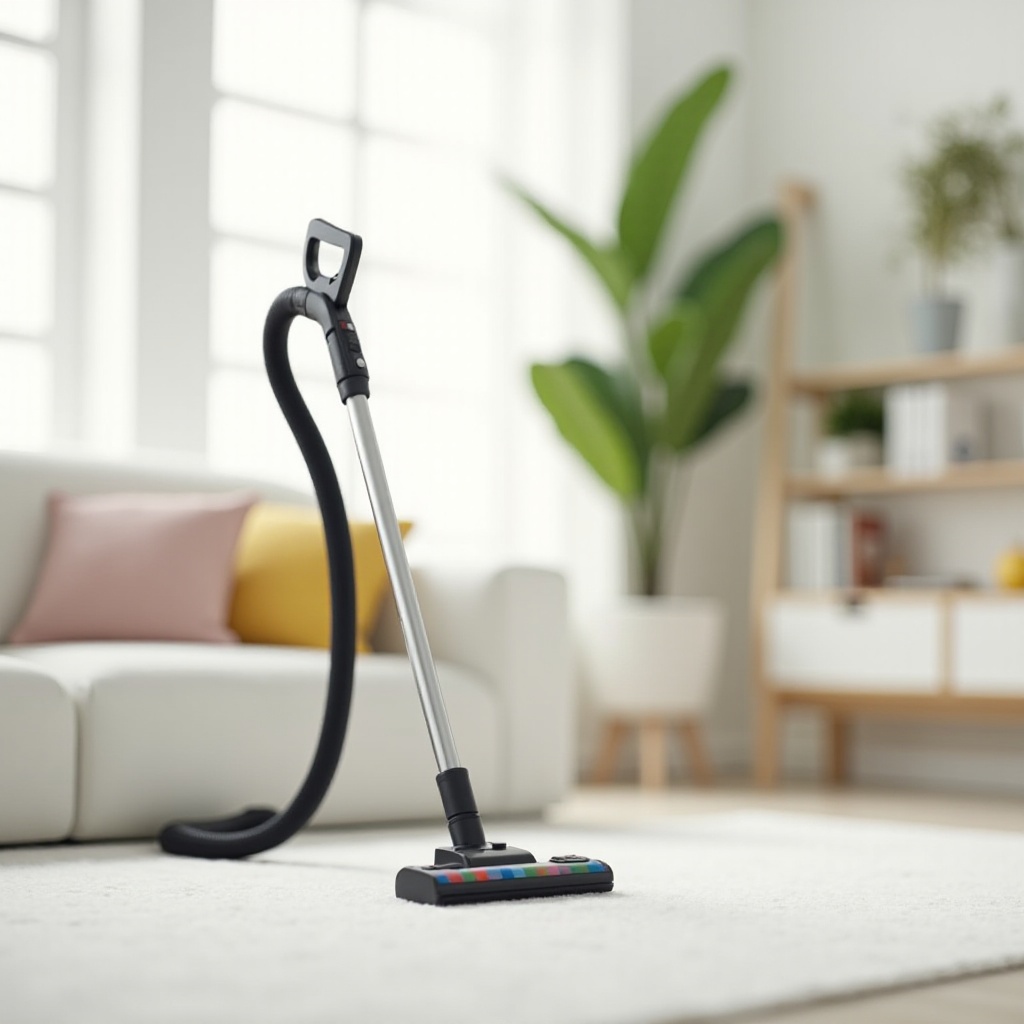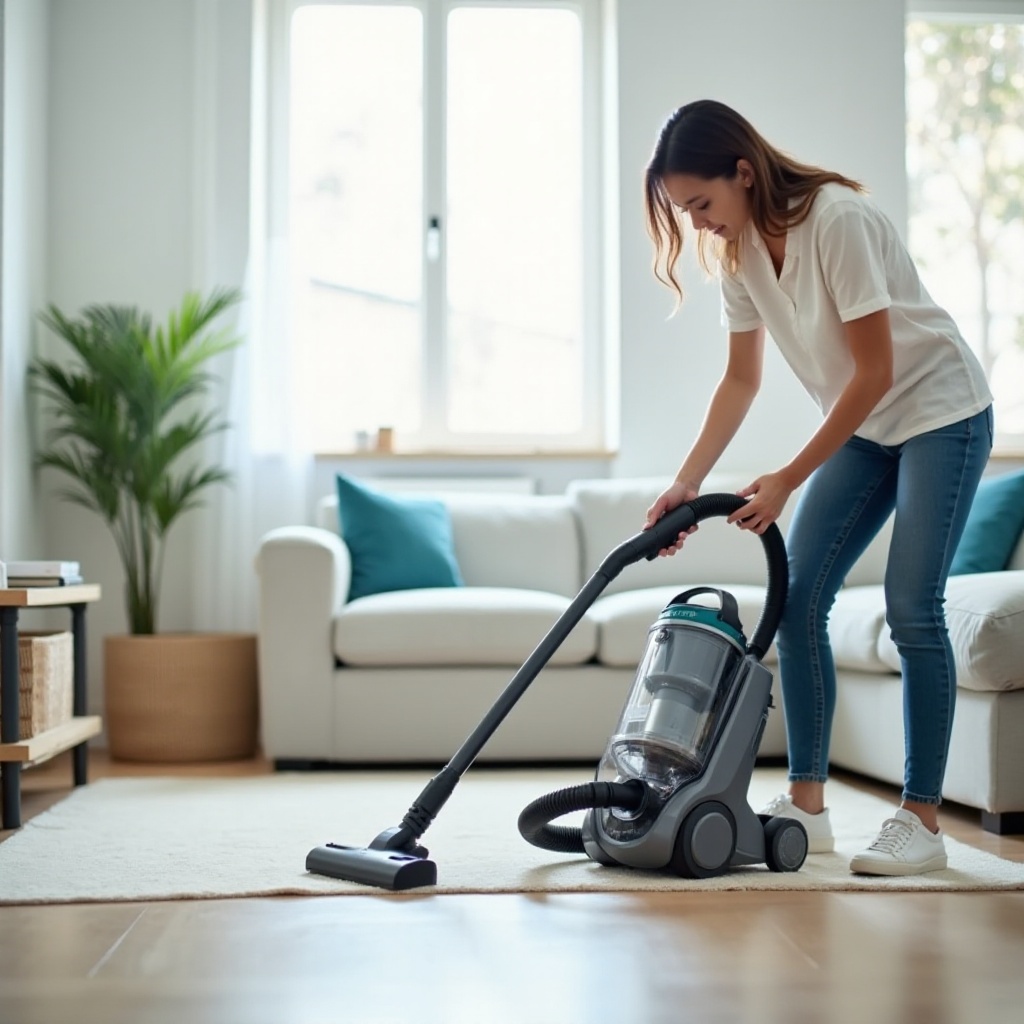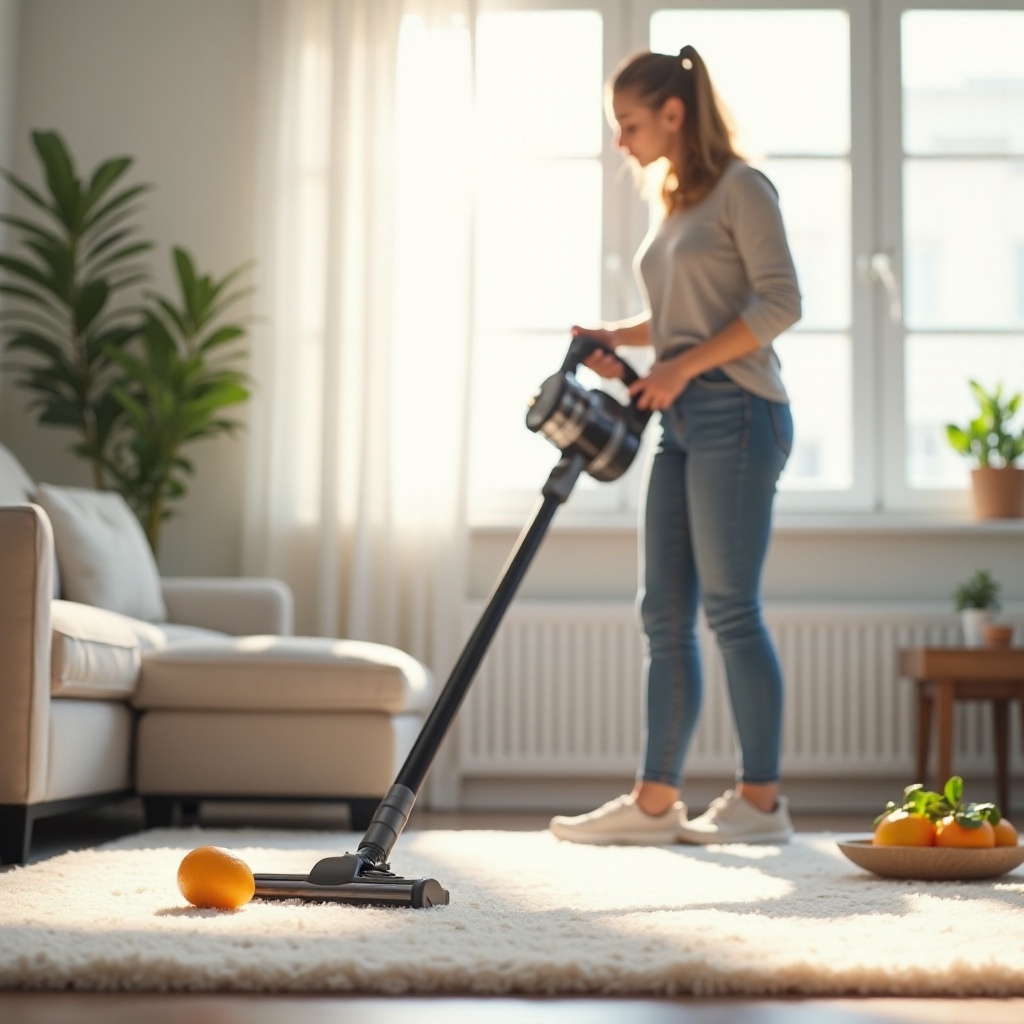Introduction
Vacuum cleaners are essential household tools, but they can sometimes emit unpleasant odors, making your home smell less than fresh. These odors often build up over time and can become a nuisance if not addressed promptly. This guide provides effective and practical tips to make your vacuum cleaner smell better, ensuring a fresh scent every time you clean. From regular maintenance routines to natural deodorizing techniques, we’ve got you covered.

Understanding Vacuum Odors
Vacuum cleaners collect a variety of debris, dust, and dirt, which can create a breeding ground for bacteria and mold. When these particles are trapped in your vacuum and not cleaned regularly, they can cause foul odors. The buildup of pet hair, food crumbs, and even moisture can contribute to these smells. Understanding the causes of these odors is the first step in addressing and preventing them. By knowing how to properly maintain and deodorize your vacuum, you are crucial for a fresh-smelling home.
Regular Maintenance for a Fresh-Smelling Vacuum
Regular maintenance is key to preventing and addressing odors in your vacuum cleaner.
Clean the Rolling Brush
The rolling brush at the base of your vacuum collects a significant amount of hair and debris. To maintain its function and freshness:
1. Remove the brush according to your vacuum’s manual.
2. Use scissors or a seam ripper to cut away tangled hair and fibers.
3. Wipe the brush with a damp cloth and let it dry before reinserting.
Empty and Clean the Dust Bag/Canister
An overfilled dust bag or canister is a common source of odor.
1. Empty the dustbin or replace the bag regularly.
2. Wash the dust canister with warm soapy water and let it dry completely before reattaching.
3. Consider using a disposable bag to reduce odors.
Check and Replace Filters
Filters trap fine dust particles and allergens, but they can also retain odors.
1. Check the filters according to your vacuum’s guidelines.
2. Rinse washable filters with water and mild detergent, then let them air dry.
3. Replace non-washable filters periodically to ensure optimal performance and odor control.

Natural Deodorizing Techniques
Natural deodorizing techniques can be an effective way to eliminate odors without using harsh chemicals.
Using Baking Soda
Baking soda is a natural deodorizer that neutralizes unpleasant smells.
1. Sprinkle a small amount on the floor before vacuuming.
2. Let it sit for a few minutes to absorb odors.
3. Vacuum as usual, and the baking soda will help freshen the air passing through the vacuum.
Essential Oils
Add a pleasant scent to your vacuuming routine with essential oils.
1. Place a few drops of your favorite essential oil on a cotton ball.
2. Put the cotton ball inside the vacuum bag or near the filter.
3. As you vacuum, the essential oils will leave a fresh scent in the air.
Vinegar Solutions
Vinegar is a powerful natural cleaner with deodorizing properties.
1. Mix one part vinegar with two parts water in a spray bottle.
2. Lightly mist a cloth with the solution and wipe down external and accessible internal parts of the vacuum.
3. Avoid spraying directly on electric components.
Deep Cleaning Steps for Persistent Odors
For more persistent odors, deep cleaning is necessary to reach areas that regular maintenance cannot.
Washing Removable Parts
Removable parts can harbor odors and should be cleaned thoroughly.
1. Remove any detachable components like the dust bin, filters, and accessories.
2. Wash these parts with warm soapy water.
3. Rinse and let them dry completely before reassembling.
Cleaning the Hose
The vacuum hose can be a source of lingering odors, as debris can get stuck inside.
1. Detach the hose and check for any blockages.
2. Use a mixture of vinegar and baking soda to create a cleaning paste.
3. Swab this paste inside the hose with a flexible brush, then rinse thoroughly with water and let it dry completely.
Addressing Persistent Odors
Sometimes, a comprehensive approach is necessary.
1. Consider running a small amount of vanilla or citrus extract through the vacuum to help neutralize odors from the inside.
2. Perform a full clean of the vacuum, ensuring all parts are addressed. This may involve professional guidance depending on your vacuum model.
Preventive Measures for Long-Term Freshness
Preventive measures can help maintain a fresh-smelling vacuum in the long run.
Proper Vacuum Storage
Storing your vacuum correctly prevents moisture buildup and odor.
1. Store your vacuum in a dry, well-ventilated area.
2. Avoid tightly enclosed spaces where moisture can linger.
Regular Maintenance Schedule
Setting a routine helps in managing odors before they become an issue.
1. Schedule monthly cleaning, including emptying the dustbin, checking filters, and wiping down external parts.
2. Ensure that critical components like brushes and hoses are checked regularly.
Avoiding Moist Vacuuming
Moisture can lead to mold and odor development.
1. Avoid vacuuming wet or damp areas.
2. Always ensure surfaces are dry to prevent moisture buildup within the vacuum.

Commercial Products for Deodorizing
Sometimes, commercial products can provide an added layer of odor protection.
1. Vacuum deodorizers or fresheners are available in many stores.
2. These products are designed to neutralize odors and can be used alongside your regular maintenance routine.
3. Be sure to follow the manufacturer’s recommendations when using any commercial product.
Conclusion
Keeping your vacuum cleaner smelling fresh requires a combination of regular maintenance, deep cleaning, and preventive measures. By following these tips and tricks, you can ensure your vacuum stays in top condition, ultimately contributing to a cleaner, fresher home environment.
Frequently Asked Questions
How often should I clean my vacuum to prevent odors?
To prevent odors, it’s best to clean your vacuum monthly, which includes emptying dust bins or replacing bags, checking filters, and wiping down parts.
Can I use commercial air fresheners inside my vacuum?
You can use commercial vacuum deodorizers that are specifically designed for this purpose. Avoid using regular air fresheners as they may damage the vacuum’s internal parts.
What should I do if the vacuum still smells after cleaning?
If your vacuum still smells after thorough cleaning, check for hidden debris or clogged areas. Replace old filters and consider consulting a professional for a deep clean.


